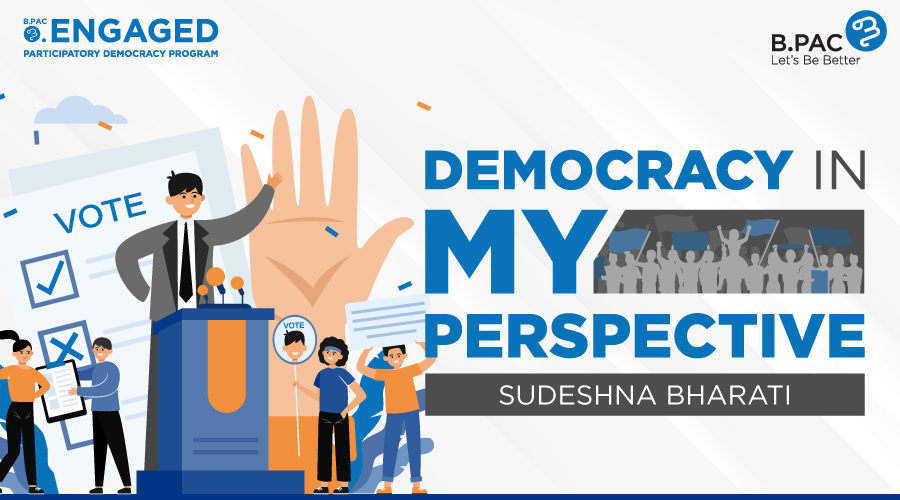The Roles of Government and Opposition in Governance: A Delicate Balance
In democratic systems, the roles of government and opposition can be likened to the binary code of computer language, where government and opposition are the 1s and 0s, respectively. Both elements are indispensable in ensuring the system functions efficiently. While the government, symbolized by the 1s, appears to be in control, it is the interplay with the opposition, the 0s, that maintains the integrity and effectiveness of the democratic process. Government and opposition can foster greater public participation in governance, ultimately cementing the power of the people.

Government: The Engine of Policy and Administration
The government, comprising elected officials and appointed bureaucrats, is primarily responsible for the formulation and implementation of policies. With access to the national budget, the government directs public funds to various sectors such as healthcare, education, infrastructure, and defense. It also enacts laws, oversees their execution, and ensures that the state’s machinery runs smoothly. The government sets the national agenda, identifying key areas needing attention and development, drafting policies that reflect the ruling party’s manifesto, and responding to emerging issues like economic downturns, health crises, and security threats.
Opposition: The Sentinel of Accountability
While the government wields considerable power, the opposition plays a crucial role in keeping it in check. The opposition acts as the sentinel of democracy, ensuring that the government’s actions align with the best interests of the populace. It scrutinizes the government’s policies and actions, highlighting inefficiencies, corruption, and policy failures. Through rigorous debate and analysis, the opposition ensures transparency and accountability. Additionally, the opposition proposes alternative policies and solutions, offering the electorate a choice and fostering a healthy democracy.
The Role of People in Governance: The True Sovereign
At the heart of governance lies the power of the people. In a democratic setup, the government and the opposition derive their legitimacy from the citizens. People’s participation is not just a periodic electoral event but a continuous engagement in the democratic process. Citizens participate in governance through voting, public consultations, and civil society activities. Active participation ensures that the government remains responsive to the needs and aspirations of the people. The relationship between the government, opposition, and the people can be likened to cement and concrete, where the interaction between these entities needs balance and stability.
Engaging Citizens in Governance: Empowering Participation
For governance to be effective and truly democratic, the involvement of people is paramount. Governments should regularly organize public consultations and hearings to gather input from citizens on various policies and projects. Participatory budgeting initiatives allow citizens to propose and vote on budget priorities, ensuring that resources are directed to areas that matter most to the community. Civic education programs in schools, community centers, and through media campaigns can foster a more informed and engaged electorate. Leveraging technology to create digital platforms where citizens can engage with their government is essential in today’s digital age.

Strengthening Civil Society and Ensuring Transparency
Civil society organizations (CSOs) play a critical role in mobilizing citizen participation and advocating for various causes. Governments should support and collaborate with these organizations to ensure a vibrant civil society. Transparent governance practices, such as open data initiatives and regular reporting, build trust and encourage public participation. When citizens can see how decisions are made and resources are used, they are more likely to engage. Ensuring that all segments of society, including marginalized groups, have a voice in governance is crucial for an inclusive and equitable development.
The Opposition’s Role in Enhancing People’s Participation
The opposition has a significant role in promoting and safeguarding public participation in governance. It can advocate for the inclusion of diverse voices in governance processes, push for policies that ensure broad-based participation, and propose legislative reforms aimed at enhancing citizen engagement. The opposition can work closely with CSOs to amplify citizens’ voices and concerns within the legislative and policy-making processes. By scrutinizing government decisions and highlighting areas where public input has been ignored, the opposition can pressure the government to adopt more participatory approaches.
Activating Society: Inspiring Work and Wealth Creation
For a society to thrive, it must be dynamic and proactive in creating wealth and opportunities. Governments and civil society can collaborate to identify areas where citizens can contribute meaningfully. Encouraging the formation of teams and networks can harness collective effort and innovation. Policies that support entrepreneurship and innovation can empower citizens to create wealth and drive economic growth. Building a culture of participation requires continuous effort and encouragement, recognizing and celebrating citizen contributions can motivate others to get involved.
Governance Beyond the Box
Governance isn’t just confined to the corridors of power. It’s a dynamic process that should involve every citizen. Establishing open offices in public spaces and setting up temporary governance booths in various neighborhoods can increase accessibility and ensure that no community is left behind. Organizing governance festivals and creating robust digital platforms can engage and educate citizens, fostering a more inclusive decision-making process. Forming citizen task forces and deploying mobile governance units can harness the collective expertise and enthusiasm of the populace.
Execution and Measurement
To ensure these initiatives lead to meaningful outcomes, both the government and the opposition must commit to forming dedicated teams to oversee the execution of each initiative, establishing clear timelines, defining specific, measurable outcomes, and creating mechanisms for ongoing feedback from citizens. By setting up open offices, leveraging technology, and fostering direct citizen involvement, we can create a more dynamic and inclusive governance system. Government and opposition must step up, adopt these innovative approaches, and focus on measurable outcomes to ensure that governance truly serves the people.





